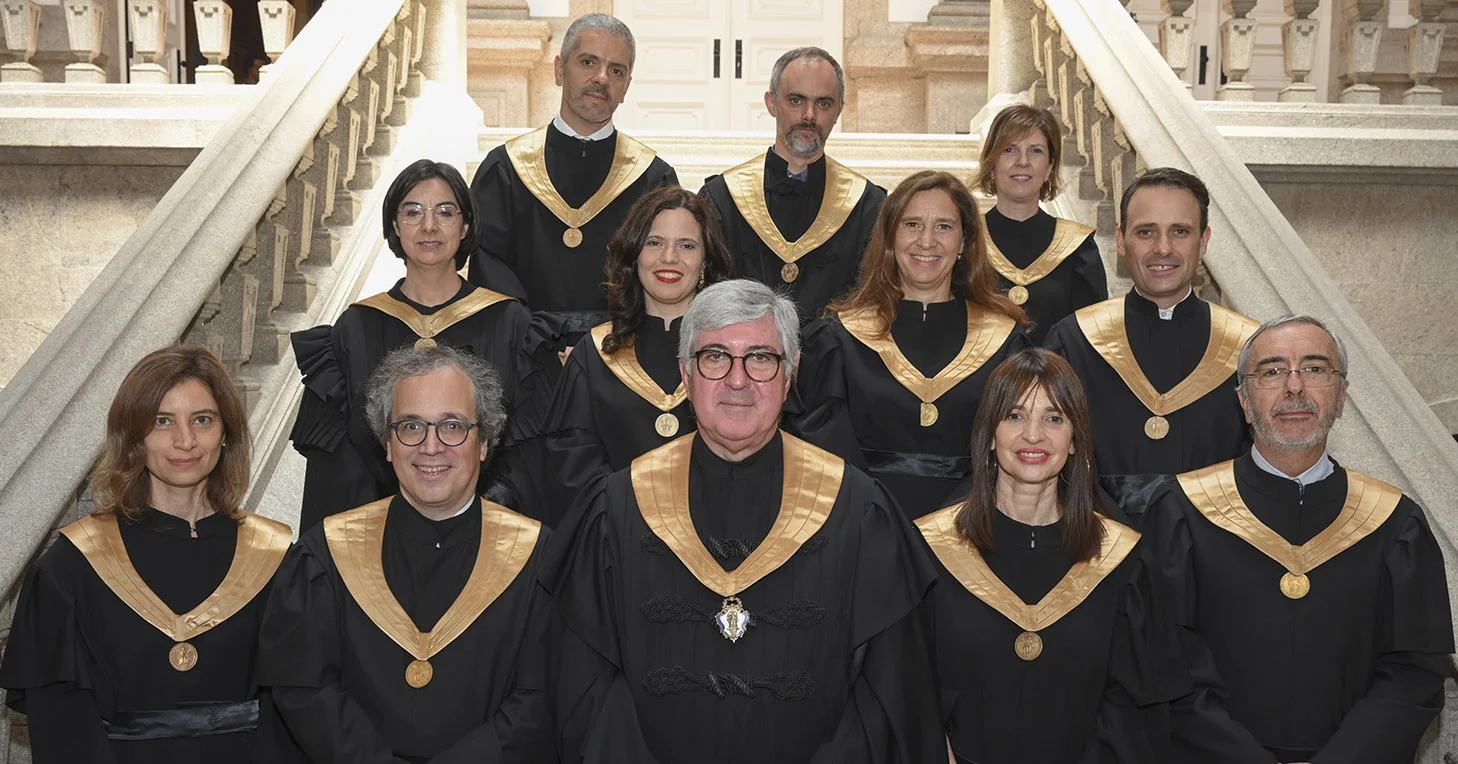
The Rector is the highest official of the University, both in governance and the representation of the institution. He is responsible for conducting the institution’s policy and chairing the Management Board and Senate of the University.
The Rector is elected by the U.Porto General Board from among the teaching and research staff of the University as well as other national and foreign institutions. He/she forms a Rectoral Team, comprising Vice-Rectors and Pro-Rectors, and is supported by the University Administrator.
The current Rector of the University of Porto is António de Sousa Pereira, elected for a four-year term (2022-2026).
The Board of Trustees passes the University Statutes, approves the resolutions of the General Board regarding the appointment and dismissal of the Rector and appoints or dismisses the Management Board. The Board is also responsible for proposing or authorising the purchase or sale of the institution’s real estate, in addition to approving the resolutions of the General Board regarding strategic plans of action and general guidelines of the University as well as the annual activity plans and the proposed annual budget.
The powers and responsibilities of the General Board include, for instance, electing the Rector of the University and approving: the value of tuition fees, the consolidated plan and report of annual activities, the medium-term strategic plan of the University and its faculties, and general guidelines of the institution on the scientific, pedagogical, financial and patrimonial levels. The General Board of the University of Porto comprises 23 members: 12 representatives of teaching and research (academic) staff, one representative of non-academic staff, four student representatives, in addition to six external figures co-opted by elected members.
The Management Board is responsible for the administrative, patrimonial and financial management of the University, as well as the management of its human resources.
Advisory body tasked with ensuring the cohesiveness of U.Porto and the participation of all of the institution’s Organisational Units in its management.
The ombudsmen defend and advocate for the rights and interests of the academic community. The ombudsmen office includes the Ombudsman for Teaching and Research Staff, the Ombudsman for Non-Academic Staff and the Student Ombudsman.
Controls the legality, regularity and sound financial and patrimonial management of the University. The Auditor is appointed by a joint decree issued by the minister in charge of finances and the competent minister, having consulted the Rector.